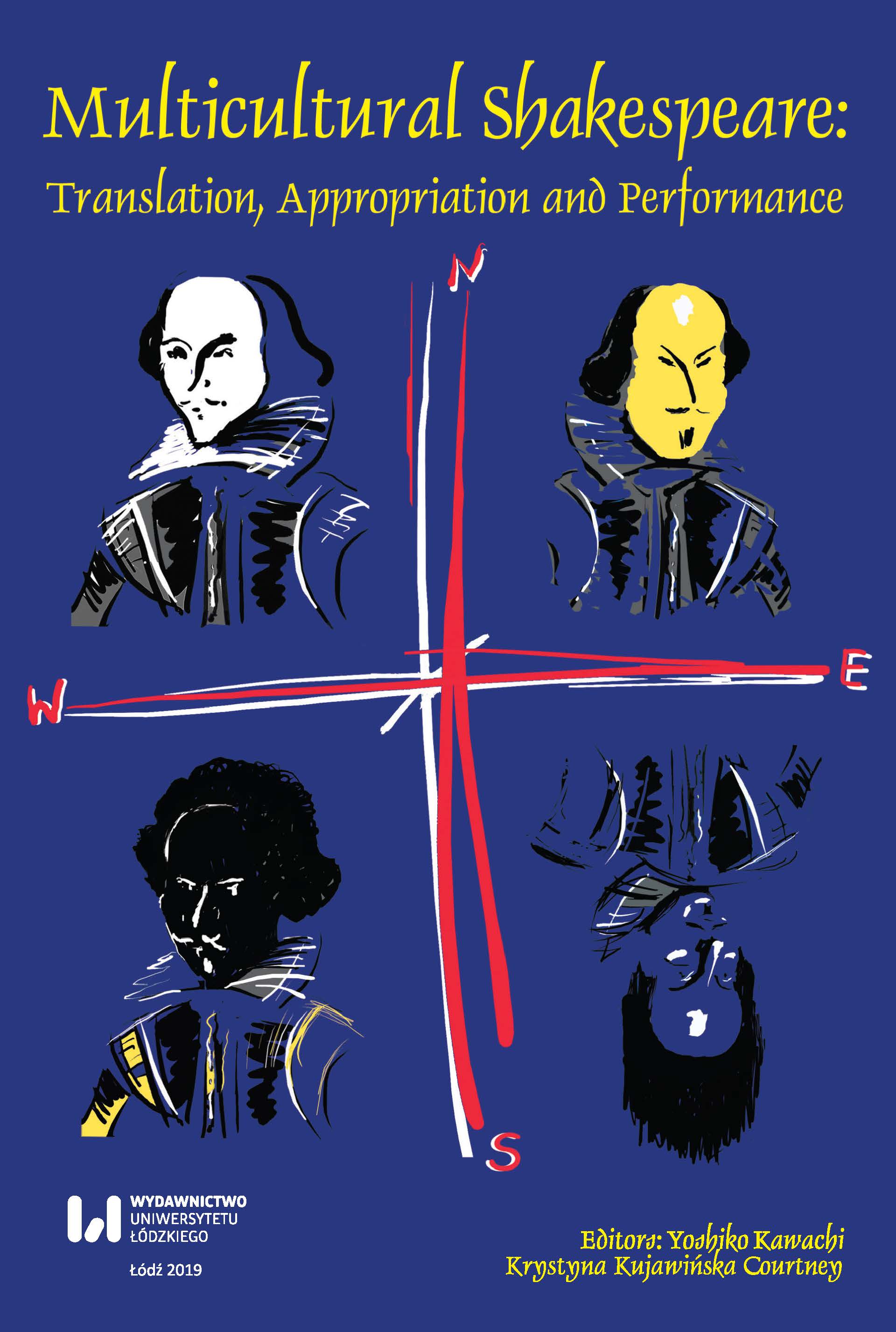Revisiting the Classics and the New Media Environments: Shakespeare Re-Told by Jeanette Winterson, Margaret Atwood and Edward St. Aubyn
DOI:
https://doi.org/10.18778/2083-8530.20.10Keywords:
adaptation, Hogarth Shakespeare, media, performance, video gameAbstract
The versatility of the appropriation of Shakespeare in recent years has been witnessed in a variety of registers and media, which range from special effects on the stage, music, cartoons, comics, advertisements, all the way to video games. This contribution looks at some of the novels in the Shakespeare Re-told Hogarth series as effigies of the contemporary process of adapting the Elizabethan plays to the environments in which the potential readers/viewers work, become informed, seek entertainment and adjust themselves culturally, being, ultimately, cognitive schemes which are validated by today’s reception processes. The first novel in the series was Jeanette Winterson’s Gap of Time (2016), in which the Shakespearean reference to the years that separate the two moments of The Winter’s Tale’s plot becomes the title of a video game relying mainly on fantasy. Margaret Atwood’s Hag-Seed (2016) rewrites The Tempest as a parable of the theatrical performance and its avatars, as undisputable authority, on the one hand, and source of subversiveness, on the other. Dunbar (2018) is Edward St. Aubyn’s response to the family saga of King Lear, where kingship, territorial division and military conflict are replaced by modern media wars, and the issues of public exposure in the original text are reinterpreted interpreted by resorting to the impact of the audio-visual on every-day life.
Downloads
References
Atwood, Margaret. Hag-Seed. London: Hogarth Shakespeare, 2016.
Google Scholar
Atwood, Margaret. Selected Poems 1965-1975. Boston: Houghton Mifflin Company, 2013.
Google Scholar
Atwood, Margaret. Surfacing. 1972. New York, London: Anchor Books, Doubleday, 1998.
Google Scholar
Atwood, Margaret. Survival: A Thematic Guide to Canadian Literature. 1972. Sydney: ReadHowYouWant, 2013.
Google Scholar
Chevalier, Tracy. New Boy. London, New York: Hogarth Shakespeare, 2018.
Google Scholar
Desmet, Christy and Robert Sawyer, eds. Shakespeare and Appropriation. New York: Routledge, 1999.
Google Scholar
Dollimore, Jonathan and Alan Sinfield, eds. Political Shakespeare. Essays in Cultural Materialism. Manchester: Manchester University Press, 1994.
Google Scholar
Garber, Marjorie. Shakespeare and Modern Culture. New York: First Anchor Books, 2009.
Google Scholar
Gopnik, Adam. “Why Rewrite Shakespeare?” The New Yorker, 17 October 2016 https://www.newyorker.com/magazine/2016/10/17/why-rewrite-shakespeare 1 August 2019.
Google Scholar
Groskop, Viv. “Hag-Seed review: Margaret Atwood turns The Tempest into a perfect storm.” The Guardian, 10 October 2016 https://www.theguardian.com/books/2016/oct/16/hag-seed-review-margaret-atwood-tempest-hogarth-shakespeare 1 August 2019.
Google Scholar
Jacobson, Howard. Shylock is My Name. London, New York: Hogarth Shakespeare, 2016.
Google Scholar
Kahn, Coppélia. “The Absent Mother in King Lear.” The Discourses of Sexual Difference in Early Modern Europe. Ed. Margaret W. Ferguson, Maureen Quilligan, and Nacy J. Vickers. Chicago: University of Chicago Press, 1986. 239-262.
Google Scholar
Lamb, Charles and Mary Lamb. Tales from Shakespeare. 1872. London: Penguin Books, 2007.
Google Scholar
Nerval, Gérard de. Selected Writings. Trans. Richard Sieburth. London: Penguin Books, 1999.
Google Scholar
Nesbø, Jo. Macbeth. London, New York: Hogarth Shakespeare, 2018.
Google Scholar
Shakespeare, William. Shakespeare’s Romances and Poems. Ed. David Bevington. New York: Longman, 2006.
Google Scholar
Shakespeare, William. Shakespeare’s Tragedies. Ed. David Bevington. New York: Longman, 2006.
Google Scholar
St Aubyn, Edward. Dunbar. London, New York: Hogarth Shakespeare, 2018.
Google Scholar
Tyler, Anne. Vinegar Girl. London, New York: Hogarth Shakespeare, 2017.
Google Scholar
Winterson, Jeanette. The Gap of Time. London: Vintage, 2015.
Google Scholar
Downloads
Published
How to Cite
Issue
Section
License

This work is licensed under a Creative Commons Attribution-NonCommercial-NoDerivatives 4.0 International License.












